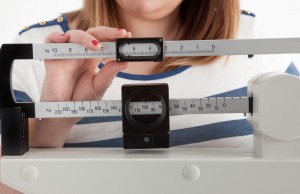Daily serving of pulses may aid long-term weight loss
Eating just 130 g of pulses daily could help with weight loss, new research suggests.
In The American Journal of Clinical Nutrition, researchers found that people who ate 130 g of pulses every day for an average of 6 weeks lost weight, compared with those who did not eat pulses daily, even when they made no other notable dietary changes.
A part of the legume family, pulses include dried beans, dried peas, chickpeas and lentils.
Pulses are low in fat and high in protein and fiber, making them an ideal food choice for individuals who do not get protein from meat, fish or dairy products. They are also high in iron, zinc, phosphorus, folate and many other vitamins and minerals.
Numerous studies have documented the heath benefits of pulses. In 2014, for example, Medical News Today reported on a study suggesting a serving of pulses each day may lower "bad" low-density lipoprotein (LDL) cholesterol by 5%.
Now, new research suggests adding a daily serving of pulses to the diet could also help tackle overweight and obesity.
Eating pulses every day led to 0.34-kg weight loss
To reach their findings, lead author Dr. Russell de Souza, of the Li Ka Shing Knowledge Institute at St. Michael's Hospital in Toronto, Canada, and colleagues conducted a meta-analysis of 21 clinical trials involving 940 participants.
Fast facts about obesity
- Around 78.6 million adults are obese
- In 2008, obesity cost the US around $147 billion
- Obesity can increase the risk of heart disease, type 2 diabetes, stroke and some types of cancer.
Learn more about obesity
These trials compared the weight-loss effects of diets containing dietary pulses with diets that did not, and each trial was conducted for a minimum of 3 weeks.
Over a median duration of 6 weeks, the team found that individuals who consumed 130 g (3/4 cup) of pulses daily had an average weight loss of 0.34 kg - just over half a pound - compared with people who did not eat pulses daily.
What is more, the team notes that the pulse-consuming individuals who experienced weight loss made no other major changes to their diets.
Previous research from Dr. de Souza and colleagues found that eating pulses can increase the feeling of fullness by around 31%, which they say may explain these latest findings.
Because pulses have a low glycemic index (GI), meaning they are broken down slowly, they make us feel full for longer, which can result in reduced food intake and weight loss.
The US is in the midst of an obesity epidemic, where more than a third of Americans are obese, highlighting the need for effective weight-loss strategies.
Dr. de Souza notes that around 90% of current weight-loss interventions do not work, which he says may be partly down to hunger and food cravings. Could a daily helping of pulses aid long-term weight loss?
Dr. de Souza says:
"Though the weight loss was small, our findings suggest that simply including pulses in your diet may help you lose weight, and we think more importantly, prevent you from gaining it back after you lose it."
Earlier this year, MNT reported on a study that sheds light on why exercise alone does not aid long-term weight loss.
Written by Honor Whiteman-
Tips On Using A Natural Weight Loss Supplement
When is comes to natural weight loss supplements, one must use caution
-
How to Lose Weight with Potato Juice
Contrary to the common perception that potato makes us fat, health ex
-
Legs R Us – Get Sexy Legs In a Hurry!
Legs R Us – Get hot legs fast, is a cute way to say that you tot
-
Why Is The South Beach Diet So Popular
The South Beach Diet is popular with peo
-
Weight Loss Tip Treat Yourself Like A Child
Whenever you feel your motivation slipping give yourself a boost by tr
-
How Much Exercise Needed for Maximum Weight Loss?
Exercise is needed for significant weigh
- DON'T MISS
- Is a Low Metabolism Keeping You Fat? Find Out The Truth
- An Easy And Healthy Weight Loss Method
- Kath Jukes, A Policyholder At LV=, Was Complicated In An Calamity Where Her Car Was Acknowledged Cars A Put In Writing-off.
- Discover How To Overcome External Barriers To Weight Loss
- Diet Program: We Want to See You Succeed
- Weight Loss Tip 8 Have Your Cake And Burn It Off Too
- Healthy Diet for Children: What Every Parent Should Do To Stop Childhood Obesity
- The Hazardous Truth: What’s Really In Your Tea
- Weight Loss In 5 Easy Steps!
- Managing Stress: Long-Term Stress Problems




